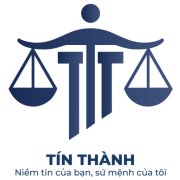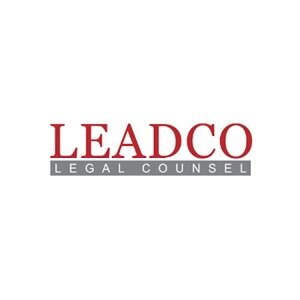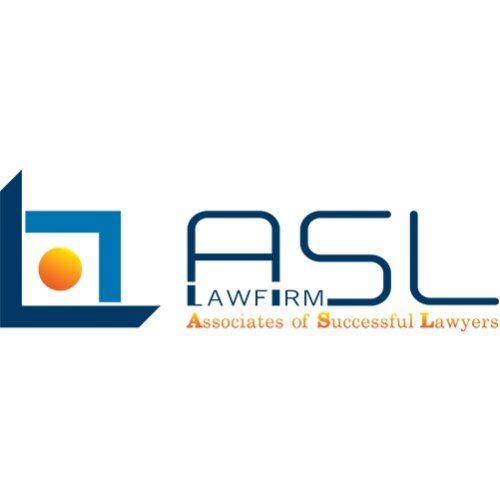Best Restructuring & Insolvency Lawyers in Hanoi
Share your needs with us, get contacted by law firms.
Free. Takes 2 min.
List of the best lawyers in Hanoi, Vietnam
About Restructuring & Insolvency Law in Hanoi, Vietnam
Restructuring and insolvency law in Hanoi, Vietnam, provides the legal framework for businesses and individuals facing financial distress. These laws are designed to help debtors and creditors navigate insolvency proceedings efficiently, ensure fair treatment of all parties, and facilitate the restructuring or winding-up of insolvent entities. The provisions are largely governed by the Law on Bankruptcy 2014, alongside various related decrees and guidance from the People's Courts. In recent years, the Vietnamese economy's rapid growth has brought increased attention to restructuring and insolvency matters, making legal expertise in this area more important than ever.
Why You May Need a Lawyer
Common situations where legal help is essential include:
- When a company or individual is unable to pay debts as they become due
- Negotiating with creditors to restructure debts and extend repayment periods
- Initiating or responding to bankruptcy petitions filed by creditors or other parties
- Advising on personal liability for business debts
- Assisting with asset protection strategies and compliance with local regulations
- Representing either debtors or creditors in court during insolvency proceedings
- Ensuring the proper valuation and liquidation of company assets
- Guiding through legal procedures related to business closure or recovery
- Addressing cross-border insolvency matters involving foreign companies or creditors
- Handling disputes related to the distribution of proceeds from asset sales
Given the complexity of Vietnam’s insolvency regime, experienced legal support increases the likelihood of a favorable outcome for both corporate entities and individual stakeholders.
Local Laws Overview
In Hanoi, as in the rest of Vietnam, restructuring and insolvency are governed by the Law on Bankruptcy No. 51/2014/QH13, which took effect in 2015. This law provides rules for the initiation, process, and consequences of bankruptcy cases concerning both individuals and legal entities.
Key aspects include:
- Bankruptcy Petition: Can be filed by debtors, creditors, employees, or authorized state agencies when an entity is unable to pay debts for over three months from the due date.
- Restructuring Plan: Debtors may propose a restructuring (recovery) plan as part of the bankruptcy proceedings, subject to approval by creditors and the court.
- Court Proceedings: All bankruptcy and restructuring matters are handled by the People’s Court in the area where the business is registered. The process is judicial and involves strict deadlines and procedures.
- Protection of Employee Rights: Employees are given priority status in the distribution of assets, specifically regarding unpaid wages and benefits.
- Duties of Insolvency Administrators: Practitioners appointed by the court to manage the assets, review claims, and ensure lawful conduct throughout the process.
- Asset Liquidation: If recovery is not possible, company assets will be sold to satisfy creditor claims in a specific order: secured creditors, employee entitlements, tax authorities, unsecured creditors, and finally, shareholders.
- Cross-border Elements: While Vietnam has yet to adopt the UNCITRAL Model Law on Cross-Border Insolvency, some guidance exists for international cases.
Vietnamese law places significant emphasis on fairness, transparency, and creditor rights, and compliance with these regulations is strictly monitored by local authorities.
Frequently Asked Questions
What is the difference between restructuring and bankruptcy in Vietnam?
Restructuring focuses on reorganizing a business’s debts and operations to restore solvency and continue business, while bankruptcy generally results in the liquidation of assets to pay creditors and dissolve the entity.
Who can file for bankruptcy in Hanoi, Vietnam?
Debtors themselves, creditors, employees, or authorized government agencies can file a bankruptcy petition at the People’s Court if a person or entity is unable to pay debts for more than three months.
What happens to employees during insolvency proceedings?
Employees are given priority in asset distribution. Outstanding salaries, insurance, and other benefits are typically paid before other unsecured creditors upon asset liquidation.
Is it possible to avoid bankruptcy through restructuring?
Yes. Vietnamese law allows insolvent entities to propose recovery plans. If creditors and the court approve the plan, liquidation can often be avoided.
How long do insolvency proceedings typically take?
Timelines vary based on complexity, but proceedings can range from several months to over a year, particularly where there are contested claims or large asset bases.
Are personal assets at risk if my company in Hanoi goes bankrupt?
Generally, liability is limited to company assets. However, shareholders, directors, or legal representatives can be held personally liable for debts if they engaged in unlawful or fraudulent activities.
What are the main roles of an insolvency practitioner in Vietnam?
Insolvency practitioners are appointed by the court to manage assets, review creditor claims, supervise the insolvent business’s operations, and ensure compliance with all legal processes.
How are creditors prioritized in a Vietnamese bankruptcy?
Secured creditors are paid first from the proceeds of collateral. Following this, employees and state authorities (for taxes) are prioritized, then unsecured creditors, with shareholders last.
Can foreign creditors participate in insolvency proceedings in Hanoi?
Yes, foreign creditors can file claims and participate, but must follow Vietnamese legal procedures and may be subject to additional requirements concerning translations and documentation.
What should I prepare before consulting a lawyer about insolvency?
Prepare all relevant documentation such as financial statements, debt records, contracts, correspondence with creditors, records of court notifications, and any prior restructuring efforts.
Additional Resources
If you are seeking information or assistance regarding restructuring and insolvency in Hanoi, consider reaching out to these organizations:
- Hanoi People's Court: Handles bankruptcy petitions and related proceedings.
- Ministry of Justice of Vietnam: Provides guidance and regulations on insolvency matters.
- Vietnam Chamber of Commerce and Industry (VCCI): Offers business support and directory of legal professionals.
- Vietnam Bar Federation: Directory of certified lawyers and legal specialists in restructuring and insolvency.
- Local accounting and audit firms: Many provide pre-insolvency advisory and restructuring consultancy.
Many law firms in Hanoi also provide initial consultations to assess your situation and advise on the most appropriate next steps for your business or personal circumstances.
Next Steps
If you believe you may be facing insolvency issues or need to restructure your business in Hanoi, Vietnam, consider taking the following steps:
- Gather all financial records and details of outstanding debts and liabilities.
- Consult with an experienced lawyer who specializes in restructuring and insolvency cases to review your position and possible solutions.
- Assess whether restructuring, debt renegotiation, or formal bankruptcy proceedings are suitable for your situation.
- Maintain clear and honest communication with creditors to explore amicable solutions if possible.
- Follow all legal advice regarding deadlines and documentation to avoid delays or additional liabilities.
- Stay updated on local regulations as insolvency laws can evolve rapidly in Vietnam’s dynamic legal environment.
Taking swift and informed action can make a significant difference in the outcome of restructuring or insolvency proceedings. Licensed legal professionals in Hanoi can help guide you through the process efficiently and effectively.
Lawzana helps you find the best lawyers and law firms in Hanoi through a curated and pre-screened list of qualified legal professionals. Our platform offers rankings and detailed profiles of attorneys and law firms, allowing you to compare based on practice areas, including Restructuring & Insolvency, experience, and client feedback.
Each profile includes a description of the firm's areas of practice, client reviews, team members and partners, year of establishment, spoken languages, office locations, contact information, social media presence, and any published articles or resources. Most firms on our platform speak English and are experienced in both local and international legal matters.
Get a quote from top-rated law firms in Hanoi, Vietnam — quickly, securely, and without unnecessary hassle.
Disclaimer:
The information provided on this page is for general informational purposes only and does not constitute legal advice. While we strive to ensure the accuracy and relevance of the content, legal information may change over time, and interpretations of the law can vary. You should always consult with a qualified legal professional for advice specific to your situation.
We disclaim all liability for actions taken or not taken based on the content of this page. If you believe any information is incorrect or outdated, please contact us, and we will review and update it where appropriate.
















